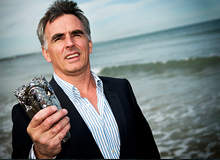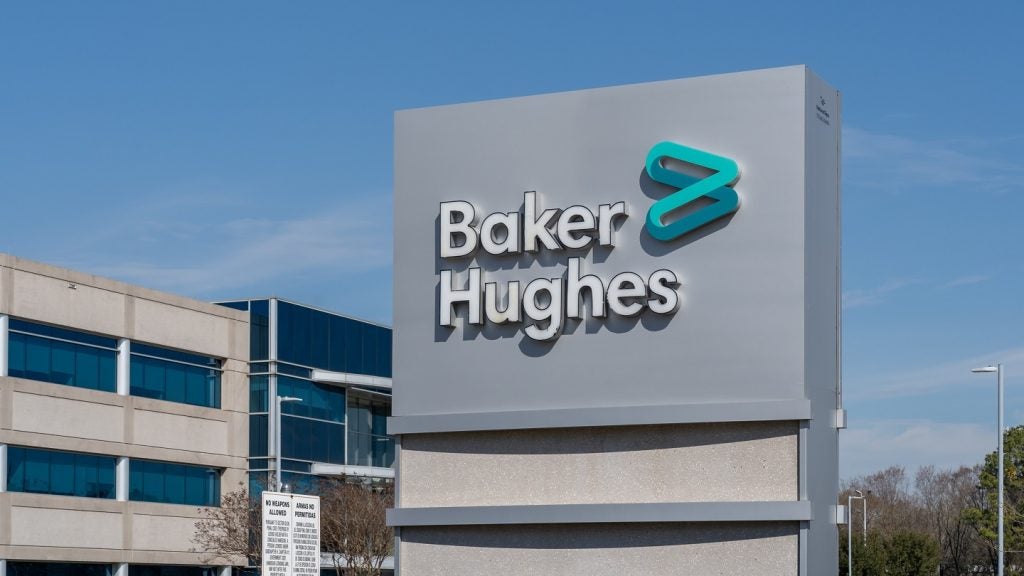
As ‘easy’ oil and gas declines, deepwater exploration and development plays an increasingly important role in meeting global energy demands; however, with the advancement into ever deeper waters the challenges and risks for oil companies exponentially grow.
Operators and contractors face safety issues, limited availability of deepwater rigs, increasing costs and a shortage of experienced and technically skilled people.
The harsh environment also calls for specialist deepwater knowledge and expertise. In 2009, a group of experienced deepwater wells professionals teamed up to form the first drilling consultancy to specialise in deepwater projects.
As a new division of the Aberdeen-based offshore consultancy Exceed, they provide full wells project capability from conceptual design, exploration and evaluation through to full field development.
Now, 18 months on, the team is working on several deepwater and ultra-deepwater exploration projects in the Black Sea and offshore Israel on behalf of Geo Global Resources, and is in advanced discussions with potential customers along the West African coast. Exceed founder and director Ian Mills explains how to deliver successful wells projects in the world’s deepest waters.
See Also:
Elisabeth Fischer: What goes into managing deepwater projects?
Ian Mills: Delivering a deepwater well is not something you can learn within a few days. Based on extensive experience, we know what is necessary to deliver safe and incident-free operations. We mobilise a team, co-locate and immerse ourselves in the client’s organisation.
How well do you really know your competitors?
Access the most comprehensive Company Profiles on the market, powered by GlobalData. Save hours of research. Gain competitive edge.

Thank you!
Your download email will arrive shortly
Not ready to buy yet? Download a free sample
We are confident about the unique quality of our Company Profiles. However, we want you to make the most beneficial decision for your business, so we offer a free sample that you can download by submitting the below form
By GlobalDataAs with all projects, the key thing is to get started at the very beginning. The first step is getting clarity and alignment on goals, the objectives and the deliverables and how they’re ranked and prioritised. The deepwater project management side is then broken down to a five-phase process, which consists of prospect maturation, well option generation, detailed well-planning, well delivery and post well operate or review. If it is a development well, obviously we operate the well; if it’s an exploration well, it’ll be abandoned and reviewed post-project completion.
At each phase there is a critical gate that we have to pass to proceed to the next phase. At each gate there are deliverables requiring management and client approval to proceed to the next stage. What we’re delivering is a formal well delivery process, exactly the same as in any other project management process.
Why would a well-established company outsource deepwater project management instead of using in-house specialists?
Under typical conditions, it’s unlikely that a well-established large international oil company (IOC) will outsource wells management. But there are occasions where a strategic exploration well needs to be drilled or a field development is slipping behind the project plan; under those circumstances the organisation would employ an external solutions provider to help fill that gap.
We provide the flexible expertise capacity to meet a business-critical skills gap and one of the unique aspects of our offer is that the team actually co-locates with the client. We use the client’s safety management system, as well as their well delivery and risk management process. Everybody outside the company would believe that we are the operator’s wells department.
Our primary target clients are national oil companies, mid-size oil companies entering deepwater or complex offshore operations. They rarely have the internal capacity or the specialist knowledge. The third market would be groups of companies in the same region who have a one-well or two-well campaign, but insufficient work scope to warrant a one-year rig contract. Multiple operators could collaborate and Exceed can put the campaign together on their behalf.
What makes a deepwater project successful?
There are many factors, but some are essential. The first one is the alignment of project goals, deliverables and measurements of success. Organisational structure is also important in order to have staff with the right experience in well-defined roles of responsibility among the team. When I say ‘the team’, I’d like to clarify that it’s not just a wells team, but it also includes the commercial side, geoscientists, the health, safety and environment (HSE) side and well delivery specialists.
The next essential factor is having a formal HSE management system in place and the management commitment that HSE is paramount in all aspects of the well delivery project. Sufficient time, coupled with the right resources to conduct the engineering analysis to make the ultimate selection of the well design, is another aspect. Only then we can meet the client’s objectives and fulfil regulatory compliance.
Another critical success factor is contract management, commercial rigour and cost control. On several occasions we’ve declined business because of unrealistic expectations, unrealistic schedule and inexperienced expectations regarding the resourcing of the project.
Other reasons for not taking on a project include insufficient time, misalignment on the risk profile and misalignment on the resources required to manage a project. Last, but not least, is the fit-for-purpose use of technology and innovation.
Deepwater is a new and challenging field. How experienced is your team?
A unique aspect of the team is that they are field-proven veterans originating from IOCs: in other words, they’ve all been trained and developed by international oil operators on an international basis for over 20 years and have a deep understanding about an IOC’s expectations and standards. Even the junior members have a minimum of ten years’ experience and the project managers and key supervisors have up to 30 years’ experience.
The forward vision for the company is to have our own internal Exceed academy where we will be able to take graduates through a formal professional development programme, consisting of a blended learning combination of technical training and on-the-job training where the graduate would be fully immersed in our own team – just like they would expect to be developed within an IOC. That’s the forward vision of how we are going to nurture, develop and build our own elite talent.
Working all over the world, what safety guidelines do you apply?
Normally we work with the local government or regulators; however, if we don’t work in mature oil and gas provinces we aim to follow industry best-practice on all occasions: we set a standard that is higher than expected locally to deliver excellence on behalf of our client from a reputational and a risk management point of view.
HSE is number one in everything we do. There’s no contingency for people and there’s no contingency for the environment. All ranking and decision-making of every operation will be evaluated against those two factors.
Is outsourcing deepwater project management a growing market?
I believe it’s a growth market place and the reason is that the number of deepwater wells accounts for about 8% of the world’s activity, but they attract a disproportional amount of spend of 18% in global terms. Drilling and wells typically amount to somewhere between 35% and 50% of an overall deepwater project.
It’s the biggest single component of a deepwater field development spend. There is a shortage of skilled experienced people within the industry, and complexity is continually increasing. We believe that the companies that provide the knowledge and the expertise to manage those risks, deliver the objectives and keep costs as low as reasonably possible, are going to be in high demand.
We wouldn’t have set the company up if we didn’t believe that there was a market for it. Exceed was established as a specialist service provider that has the knowledge to manage the HSE aspects, the risks and uncertainty, as well as the commercial aspects to ensure that the client gets the right data they need to make the right decisions and to develop the field.




